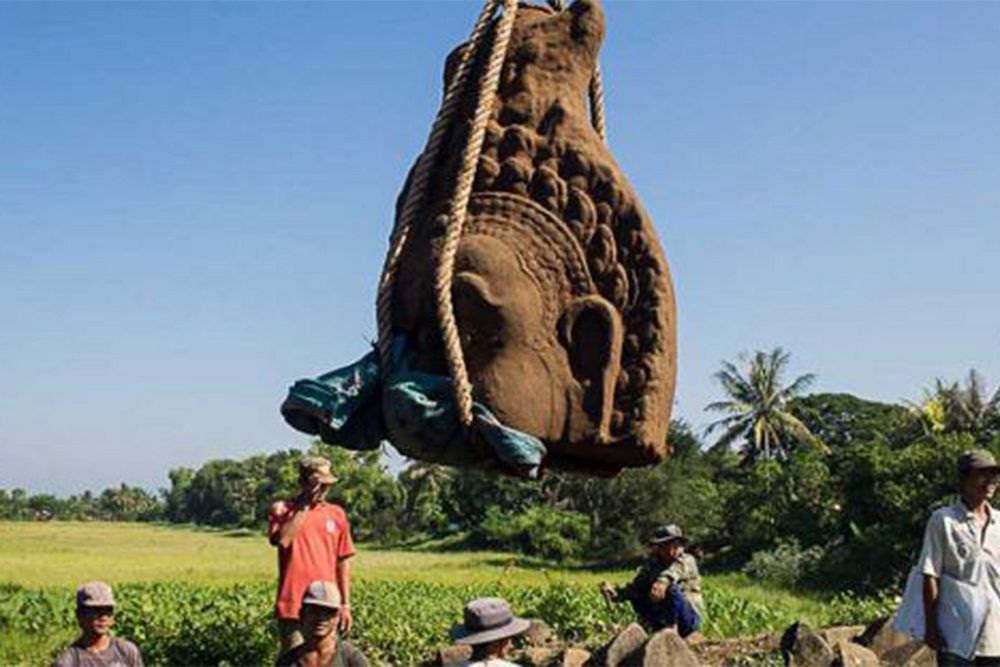Scientists in China recently achieved a major scientific breakthrough by cloning two monkeys.
Last week, scientists at the Institute of Neuroscience in Shanghai announced they had created two genetically identical long-tailed macaques using the same process that produced Dolly in 1996, according to The Atlantic. The achievement has the potential to assist in the studying of various diseases while sparking heated discussions about the potential of human cloning.
The monkeys, which were born six and eight weeks ago, are named Zhongzhong and Huahua, after the Chinese word zhong hua, which means "Chinese people” - a reflection of the pride they have instilled in their creators. "We're excited — extremely excited," Mu-ming Poo of the Chinese Academy of Sciences said. "This is really, I think, a breakthrough for biomedicine."
While not the first monkeys to ever by cloned, they are the first to result from the single cell nuclear transfer (SCNT) technique, which involves putting cell nucleus DNA into an egg cell that is then chemically stimulated to develop into an embryo. It is the same process used for Dolly the sheep and 20 other species including cows, pigs, dogs, rabbits, rats, and mice.
Previous efforts to duplicate monkeys relied on splitting embryos, which is the same phenomenon that happens when twins are born and can only produce four offspring, making it less appealing for use in scientific studies, according to the Independent.
Having a large number of genetically identical monkeys would allow scientists to rigorously observe specific genes and any alterations made to them. “You can produce cloned monkeys with the same genetic background except the gene you manipulated,” said Dr. Qiang Sun, the Chinese scientist who led the team that produced the research published in the journal Cell. “This will generate real models not just for genetically based brain diseases, but also cancer, immune or metabolic disorders, and allow us to test the efficacy of the drugs for these conditions before clinical use.”
Christopher Navara, a biologist at the University of Texas at San Antonio, qualified that cloned monkeys “could be very useful for studies of some diseases, but less so for others.” Childhood disease could be studied in young monkeys immediately but for diseases that appear later in life, such as Alzheimer’s or Parkinson’s, it would take decades.
There is also no consensus if cloning affects an individual’s health or how it may alter the aging process. Anthony Perry of the University of Bath noted, “You wouldn’t use this approach with all these unknowns. If you want to make a genetic model of disease, the last thing you want is to use a model you don’t know much about.”
The cloning process is also very inefficient and expensive. To create Zhongzhong and Huahua, the team transferred DNA into 127 eggs. Of those, 109 developed into embryos, and 79 were transferred into surrogate monkeys which produced only six pregnancies and just two live births.
The achievement has reignited debates over the ethics of cloning humans. Many bioethicists condemn the idea outright. "Cloning one individual in the image of another really sort of demeans the significance of us as individuals," said Dr. George Daley, dean of Harvard Medical School. "There's a certain sort of gut sense that it violates sort of natural norms."
Laws against human cloning exist in many countries, but there is nothing to stop a rogue scientist from attempting it, in theory. "We live in such a celebrity-driven world that there are unscrupulous practitioners who might try this," Daley said.
The Chinese scientists have stressed that they have no plans or interest in ever trying to clone a person. "Technically speaking one can clone human, but we're not going to do it,” Poo said. He claimed that the reason “we broke this barrier is to produce animal models that are useful for medicine, for human health. There is no intention to apply this method to humans.”
[Photo via Engadget]














